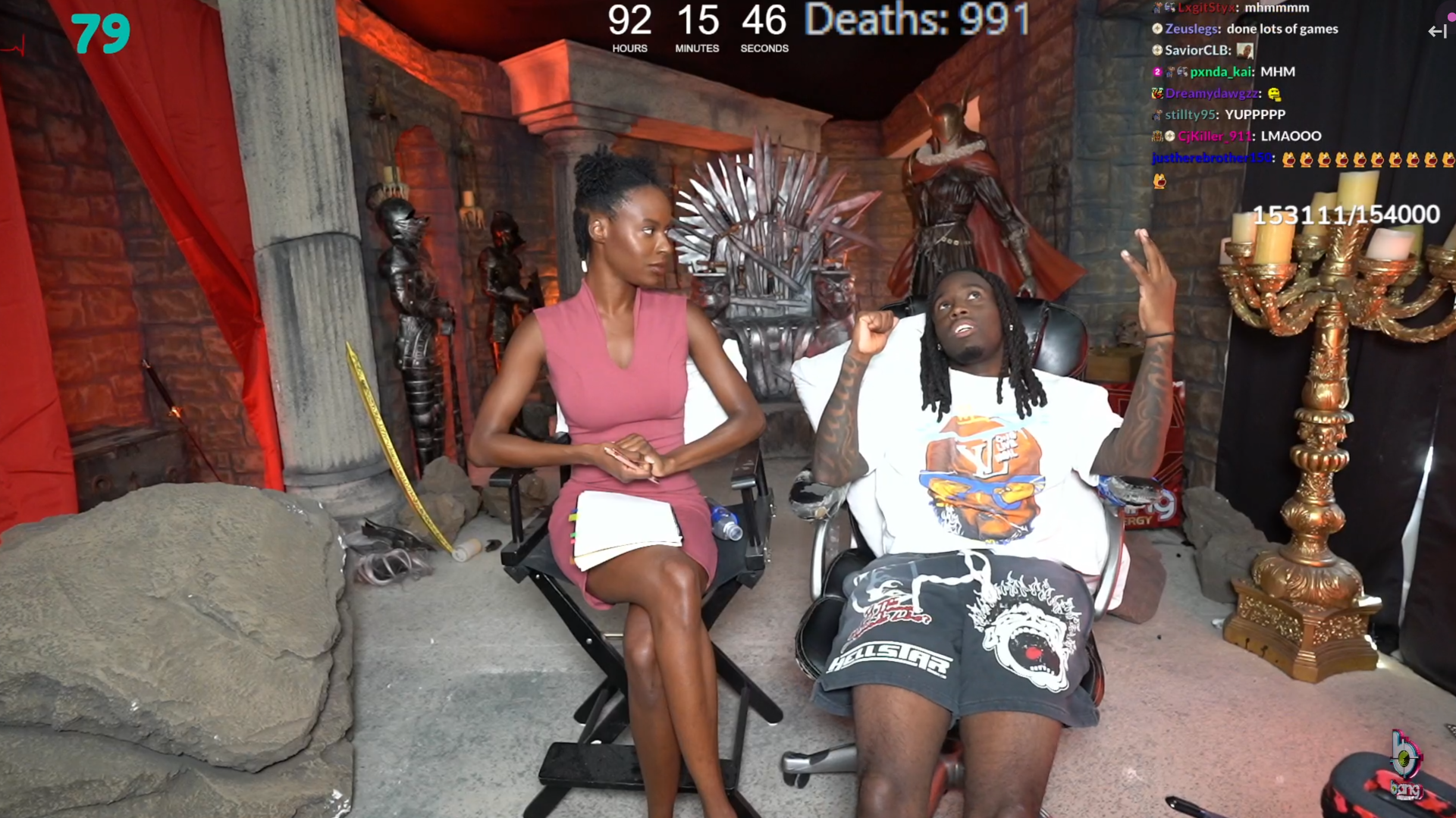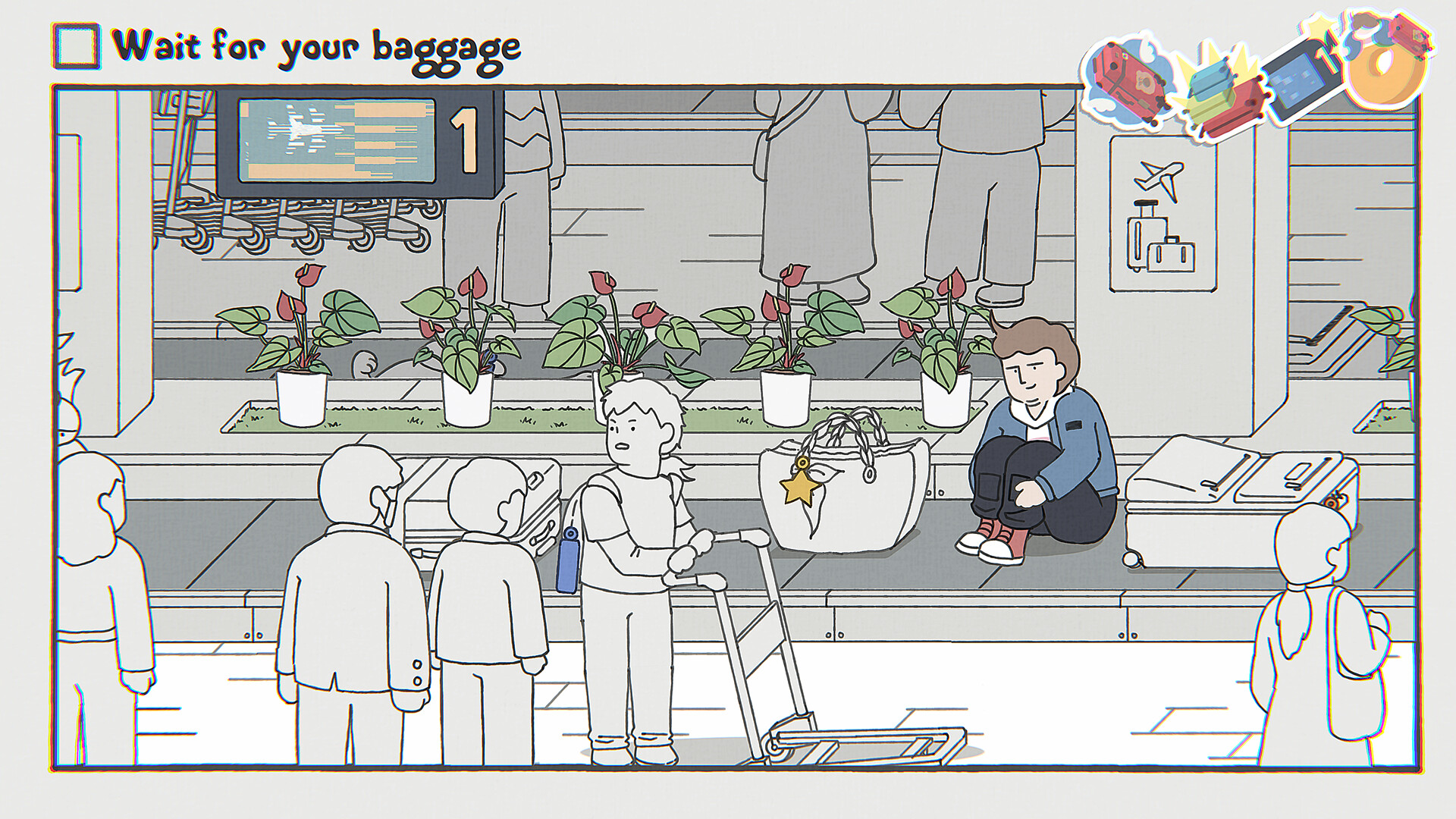It’s a day that ends in Y in a year that ends in a number, so of course someone, somewhere is upset about video game reviews. This week a portion of the peanut gallery flipped its lid about personal anecdotes in Elden Ring: Shadow of the Erdtree reviews, which, some insisted, should be devoid of anything beyond The Cold, Hard Facts. That’s a boring and incurious way to do things, but at least it also makes no practical sense. On this week’s episode of Aftermath Hours, we talk about that.
This time around, we’re joined by John Warren, formerly of Fanbyte and now of the just-launched VGBees. First we discuss John’s new reader and listener-supported website, which aims to provide a home to good writing about video games. The more the merrier, we say. Then we hop on the endless merry-go-round that is the question of what a game review should be, as inspired by discourse around Elden Ring: Shadow of the Erdtree. If said discourse makes you want to tear your hair out, don’t worry: You’re not alone!
After that we talk about this week’s Nintendo Direct, in which the company clearly did not get the memo that the Switch is supposed to be crawling across the finish line right now; instead it announced another year of heavy hitters like Legend of Zelda: Echoes of Wisdom and Metroid Prime 4. Finally, we move on to Paradox’s baffling decision making around its supposed Sims killer, the now-canceled Life By You. Then we wrap things up by talking about what it’d be like to party with the loathsome Dung Eater from Elden Ring. I, for one, think it’d be a great time.
You can find this week's episode below and on Spotify, Apple, or wherever else you prefer to listen to podcasts. If you like what you hear, make sure to leave a review so that we can replace all video game reviews with long, unrelated personal anecdotes from here until the end of time.
Here’s an excerpt from our conversation:
Nathan: It does feel like early on, what you’re allowed to or supposed to publish is the product review, and then in the aftermath – ha, ha – the audience becomes more accepting of things that dig deeper or that criticize something from different angles or that take a more personal approach or whatever. There’s this weird thing where if you go with the more personal angle – as we saw with Kotaku’s review of Elden Ring: Shadow of the Erdtree – people will be like “How dare you? You’re not allowed! You shouldn’t be able to do this.” But if somebody publishes that same piece three weeks down the line, no one will care. No one will give a shit. They’ll be like “Yeah, sure. Whatever.”
I feel like we’ve had that happen a bunch of times in the past with other games. Somebody publishes something a little more off the beaten path on day one – or something that’s a bit more critical, is not in line with what everybody else is saying about the game’s quality, or whatever else – and people lose their shit. But then later on, somebody publishes that same kind of thing, and everyone’s like “Oh, this is actually interesting.” Or later on, the general consensus after people get to play the thing kind of shifts to align with that early piece that was more critical or personal. People are like “Oh yeah, I get it now.” And it’s like, man, just let ‘em cook. We’ve gone through this cycle so many times. You’ve got to understand. It’s gonna be OK.
John: We’ve talked about this so many times in the industry. I have a personal taste issue when it comes to personal essays where, if it’s 85 percent personal observations and 15 percent actual game crit, that annoys me on some level. But the way the discourse was about Alyssa’s review of Erdtree, I expected to open that thing and find a LiveJournal post from 2004.
Nathan: There are, like, four lines! It’s barely in there.
John: It’s a paragraph! It’s very little, and it’s deeply contextualized. It’s interesting. This is what I want from most crit. I can watch the Digital Foundry breakdown on if the framerate’s good. I don’t care. There are a lot of people who do, and that’s fine. But I want a deeper reading on this. I do want something that scratches a little bit deeper, and if that’s happening on day one – if someone has the wherewithal and the time; she didn’t really have the time, but she had the wherewithal – that’s great. That’s ideal for me.
Nathan: I think it’s also cool for games in genres that are traditionally less accessible, like Soulslikes. I’m probably not going to experience the Erdtree DLC. I have not beaten the requisite bosses in the original game. I’m not going to, and I’ve made my peace with that. The idea that I can hear about this firsthand experience from somebody else and hear their view of it is really valuable to me. I want that more personal element from people’s writing about a game like this, as I would with – and this is a totally different ballpark – a game like EVE Online. These things that I won’t personally experience in the way that they are intended to be experienced, but somebody else will, and their experience sounds really cool and fascinating. I want to absorb that through them and through their perspective.
And so yeah, it’s just weird to me that people are like “No, it must be this perfectly sterile piece of writing that simply lists what is in the game and says whether it’s good or bad,” like it’s a checklist or something.
John: What’s also maddening is that this so often happens around games that frankly everyone kinda knows are gonna be bangers. There’s something kind of goofy about “I’m gonna tell you that this thing you knew was gonna be a banger is a banger.” How boring is that? What are we getting from that? So to talk about it in any way that takes your years of experience with games and game development and covering games and playing games and also your personal experiences with X, Y, and Z into account, that’s incredibly valuable to me.
It’s a goofy conversation that I feel like we have every three years.
Nathan: Every couple years, maybe even every year. The cycle has sped up so much at this point. There’s always a new herd of people that are like “No, game reviews have to be this or that.”
John: They have to be objective, whatever that means.
Riley: I think I’m with you, John, and this is coming from me as a trans person who has edited trans people. I do think there can be a little bit of an xoJane “It happened to me”-style personal essay industry. Definitely I’ve made money being like “I learned about my gender playing X Game.” As an editor, it’s complicated, because I feel like I’m judging somebody’s experience when I don’t want to edit those kinds of pieces or commission those kinds of pieces. Part of me wants to rebel against those because I think it’s such a channel you can get trapped in.
John: It’s something you can get trapped in, and it’s something that I think can get away from criticism of the actual thing. But on the flipside of that, I’ve seen pieces that thread that needle beautifully.
Riley: I think the thing is, a good writer can thread that needle well, and as an editor, you can help a writer learn to thread that needle well.
John: Yeah, balance things like “You made a good point here. How can you connect it to what you played a little bit more closely?”
Riley: I edited a piece like that for Polygon about trans stuff and I want to say Master Chief. It was a freelance piece, and I was a freelance editor, and I worked so hard on it. I made them do so many edits. They were really great, and the piece came out so good. It was one of those editing processes where I hope that we all felt good about it. But I definitely felt like I was like “I’m doing my job here. Yeah.”
John: You get such a really keen insight into someone’s very real experience playing or watching or listening to something that is guiding them through one of the most important moments of their life. Renata Price used to work at Kotaku and Waypoint. She wrote a piece about Valorant voice chat helping her train her voice a bit. I was lucky enough to see a draft of that early, and I felt like it was not threading that needle perfectly, but she got it there. And I think that’s beautiful.
There are a few things happening: 1) I might not be a strong enough editor to get someone there. Sometimes that happens. And 2) you’re making a connection that your brain has made, but is that connection real? Did these things happen simultaneously, or are they actually connected? It’s a common trap in a lot of personal essays. They’re happening almost parallel but not actually connecting. When that happens, that’s when I get frustrated. But otherwise, if you can actually thread that needle, that’s some of the best writing that I love to publish and read.
Riley: It’s so much more interesting to read about someone’s lived experience with a game than some Digital Foundry “looks good” kind of [evaluation]. But also, if I want to buy a game, there’s room for everything.
Nathan: Exactly. The internet is enormous. There will always be millions of product reviews of things. There’s room for all of it to coexist and for people to find the things that work for them. The implication, I think, espoused by a lot of these people who are threatened by these types of reviews is that if this kind of writing is allowed to proliferate, then the reviews they’re looking for will go away. It’s an extension of that same gamer mentality of “They’re taking our games."
And it’s like, yeah, but you’ve gotta understand, even if you feel threatened by this, just numerically, you won’t be affected. There’s not a viable means by which this kind of writing could overcome the thing you already have in abundance. It’s literally impossible. And there are not incentive structures online to make it become possible. People are always going to want product reviews more than they want good criticism. Because product reviews tell them whether or not to spend their money, and money is unfortunately, in a capitalist society, the center of our lives. That’s just how it is.





